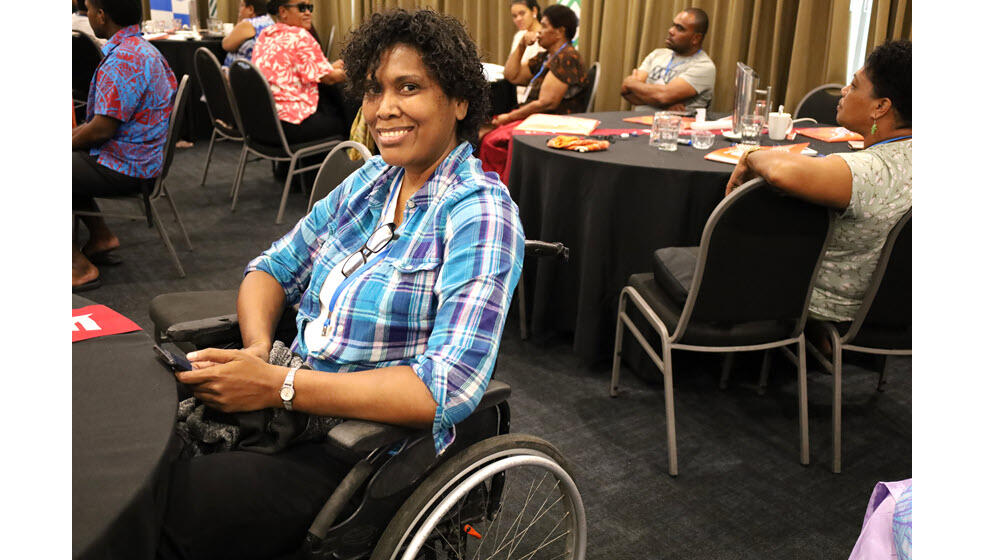At 20, Emily Bryson was full of dreams. She was a rising Netball player with dreams of playing nationally and internationally. But a devastating injury shattered her world, leaving her paralyzed and confined to a wheelchair. The once vibrant athlete struggled to accept her new reality, isolating herself at home for years. Despite being in care of a loving husband and two beautiful children, Emily felt no purpose in her life. Life seemed a big burden on what she considered her weak shoulders.
“Accepting that I was disabled was the hardest part of my journey. It took me 15 years to accept that I was in a wheelchair and not an athlete anymore. I started hating the Netball sport,” recounts Emily.
The loss of her husband five years ago forced Emily to confront her challenges head-on. Overcoming her grief, she found strength and purpose in her community. With unwavering determination, Emily transformed her life, starting her own business and becoming an active member of local community and youth groups.
“I used my wheelchair for mobility, not as a disability. I started joining groups of persons with disabilities (PWD) and got involved in community work. I opened my own business to be financially independent and earn for my family.”
Emily is a fierce advocate for the rights of PWDs. She is a member of the Spinal Injuries Association. Through her association with different PWD groups in Fiji, she is constantly fighting for the integration of needs of PWDs in delivery of social services including health and education. Emily was a participant at a recently organized training by UNFPA for Sexual and Reproductive Health Officers, Disability Inclusion Officers and service providers. Along with 50 PWDs, Emily helped to identify gaps in health service delivery for PWDs. She provided her inputs to strengthen the capacity of health workers to deliver sexual and reproductive health and gender-based violence prevention services to PWDs.
“The needs of PWDs should be integrated in delivery of social services including sexual and reproductive health (SRH). Training like these provide an opportunity for us to express our specific needs and advocate for services that truly meet our requirements. Service providers must adapt their approach to cater to the diverse needs of PWDs to ensure accessibility and effectiveness in delivering SRH care,”explained Emily.
A report jointly published by UNFPA, the Pacific Disability Forum, Women Enabled International and national organizations of PWDs in 2022 about the results of needs assessments conducted in Fiji, Samoa and Vanuatu, revealed a disparity in the levels of knowledge about SRH between PWDs and those without. This lack of knowledge resulted in PWDs experiencing limited access to SRH services, compounded by discrimination, physical inaccessibility of health facilities and the lack of awareness and empathy among healthcare providers on the unique needs of PWDs.
To address the gaps, UNFPA Pacific supports disability inclusion as a pathway towards more inclusive and equitable healthcare systems. This is done through a ‘twin-track’ approach of combining targeted interventions specifically aimed at PWDs and mainstreaming the needs of PWDs across different interventions under UNFPA’s flagship programme, Transformative Agenda for Women, Adolescents, and Youth in the Pacific (TA), funded by the Australian Government’s Department of Foreign Affairs and Trade (DFAT).
In her village in Lami (Suva), Emily is a beacon of hope for others. She uses her experiences to mentor young people, guiding them on issues like education, sexual and reproductive health, prevention of gender-based violence and drug abuse. It is heartening to see that she has reconnected with her love for sports, becoming a member of a Netball Association.
“Sports unites people. Through sports, I work with young people to educate them on pressing issues such as drug abuse, sexual and reproductive health, HIV, and gender-based violence. I am glad to help young people make better choices in their lives.”



